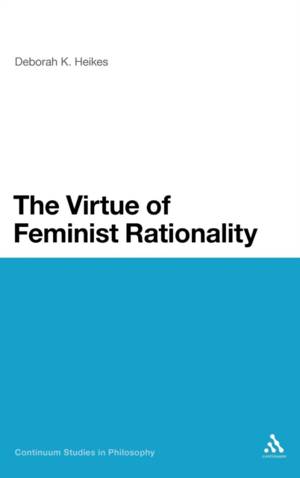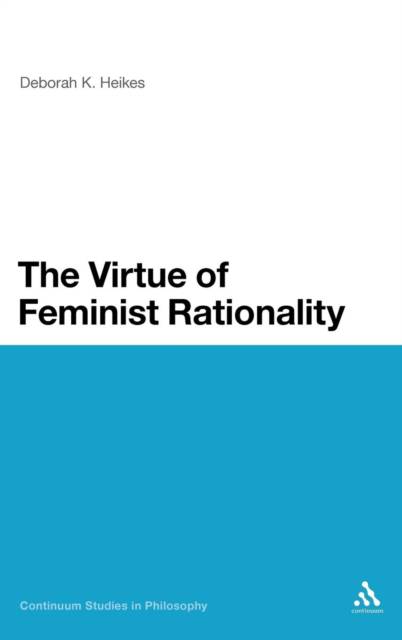
- Afhalen na 1 uur in een winkel met voorraad
- Gratis thuislevering in België vanaf € 30
- Ruim aanbod met 7 miljoen producten
- Afhalen na 1 uur in een winkel met voorraad
- Gratis thuislevering in België vanaf € 30
- Ruim aanbod met 7 miljoen producten
Zoeken
Omschrijving
Feminist philosophers have been some of the most vocal critics of reason and rationality. While most feminists realize that rationality is a concept that cannot be entirely abandoned, few have considered how to construct a positive account of rationality. This book represents a sustained argument for a feminist theory of rationality. It opens by asking the question: is reason inherently masculine? Deborah K. Heikes goes on to answer this question negatively and to examine what feminists actually want from a theory of rationality, specifying what a virtue theory of rationality is and how it works. She identifies those features that feminists believe are central to reason, identifying four dichotomies that are central to feminist thinking (mind/body, reason/emotion, identity/difference, objectivity/subjectivity), and argues that they can be captured by conceiving of rationality as a virtue concept. She further demonstrates how a specifically feminist theory of rationality can provide objective grounds for feminists' moral, political and epistemic agendas.
Specificaties
Betrokkenen
- Auteur(s):
- Uitgeverij:
Inhoud
- Aantal bladzijden:
- 224
- Taal:
- Engels
- Reeks:
- Reeksnummer:
- nr. 9
Eigenschappen
- Productcode (EAN):
- 9781441186577
- Verschijningsdatum:
- 21/06/2012
- Uitvoering:
- Hardcover
- Formaat:
- Genaaid
- Afmetingen:
- 152 mm x 236 mm
- Gewicht:
- 521 g

Alleen bij Standaard Boekhandel
+ 678 punten op je klantenkaart van Standaard Boekhandel
Beoordelingen
We publiceren alleen reviews die voldoen aan de voorwaarden voor reviews. Bekijk onze voorwaarden voor reviews.








